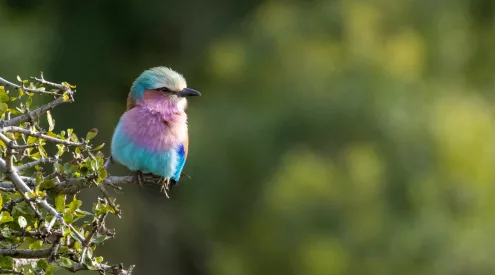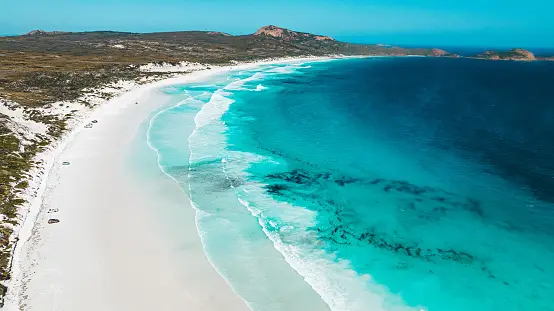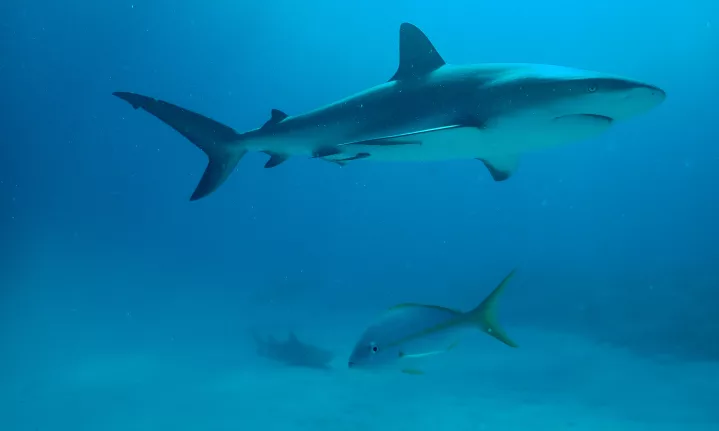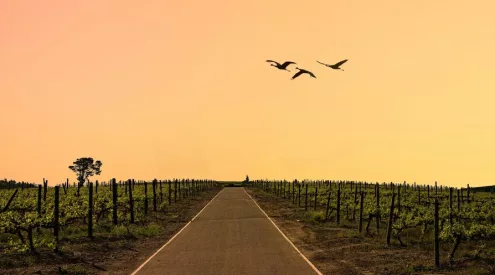Worldwide, reports of shark-on-shark attacks are on the rise. Now, off South Africa’s dramatic southern coast, a new hotspot has emerged — in Mossel Bay. Off the coast near Seal Island where great white sharks are known to chase and capture the furry mammals with breach-the-surface aeronautics, scientists have come upon a new theory as to what makes up most of the great white shark’s diet — and it’s not seals.
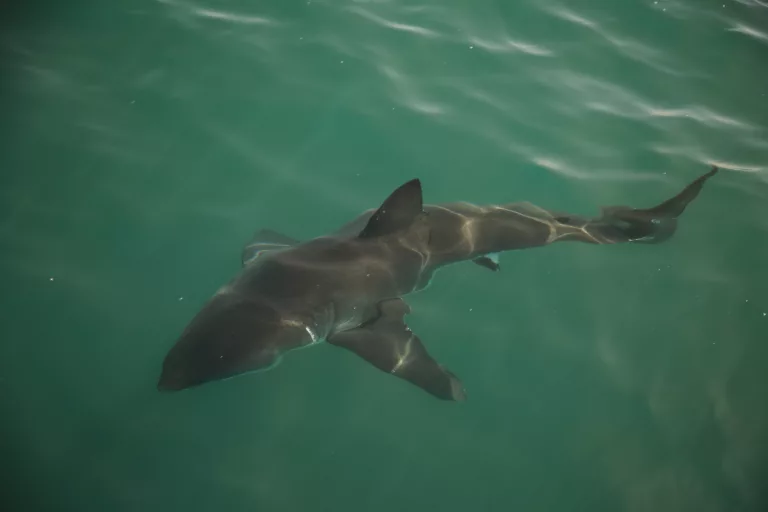
White Shark next to the team’s research boat, Mossel Bay, South Africa. Picture: National Geographic for Disney
In a ground-breaking investigation shown in National Geographic’s Shark Eat Shark (part of SHARKFEST, which premieres on Saturday 1 July at 6:45 pm), scientists Enrico Gennari and Lacey Williams embark on a factual voyage with the help of Neil Hammerschlag to solve this predator-prey mystery, by casting a wide net of scientific experiments across the bay. The pair use camera tags and baited remote underwater vehicles (or BRUVs), skin samples and more, to try and capture concrete evidence that sharks are preying on other sharks. With a target area locked in as their playing field for the search, everything starts off promising. But even though the team believes they have every angle of the investigation covered, nature throws them curveball after curveball that threatens to jeopardise everything.
In the end, the team perseveres against all odds and is left with the first-ever evidence of their theory that life in the waters of Mossel Bay is a Shark Eat Shark world.
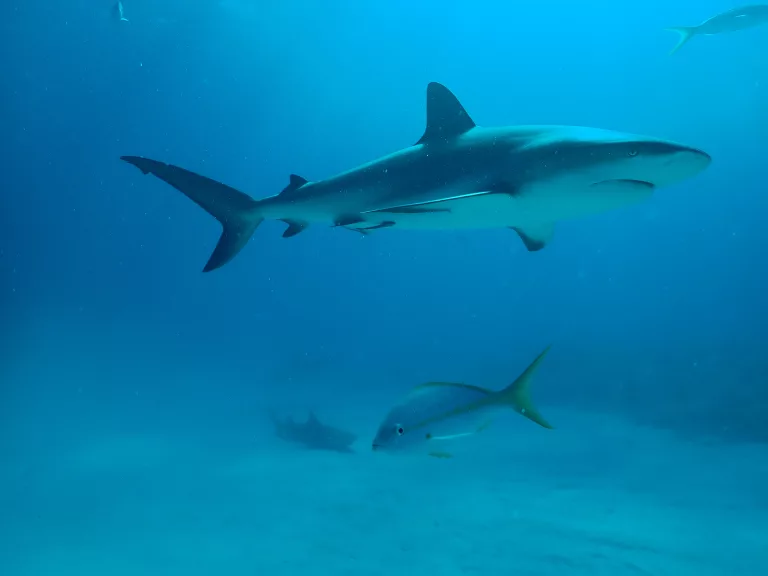
A tiger shark swims past the camera. Picture: National Geographic for Disney/Mike Heithaus
With cutting-edge technology and industry-leading experts, SHARKFEST will entertain you with four weeks of explosive, hair-raising and celebratory shark programming that will showcase the captivating science, power and beauty of these magnificent animals — because one week is simply not enough. With over 22 hours of original programming and over 50 hours of enhanced content, you’ll be able to dive deep into the unpredictable psyche of sharks and their remarkable lives.
SHARKFEST will also explore the waters across the US in Cape Cod, Florida, Hawaii, New York, South Carolina, and worldwide in Australia, the Bahamas, Canada, Indonesia, the UK and more for a global underwater adventure.
Continuing its partnership with Minorities in Shark Sciences (MISS), which encourages diversity and inclusion in shark sciences and inspires the next generation of scientists, National Geographic’s SHARKFEST will feature new and familiar experts in this year’s programming. This collaboration lends MISS experts as on-screen talent and allows them to be consultants for the programming and development of the series.
Watch the trailer
National Geographic’s Shark Eat Shark premieres on Saturday 1 July at 6:45pm.
How to tune in
National Geographic Wild
DSTV: Channel 182
StarSat: 221 on DTH, 210 on DTT (250 on DTT in Uganda)
National Geographic’s SHARKFEST hub, natgeo.com/sharkfest, will be updated throughout the month to include enhanced content about sharks, including facts, photos and videos, quizzes and more, providing audiences with a better understanding of the ocean’s most misunderstood predator.
Follow us on social media for more travel news, inspiration, and guides. You can also tag us to be featured.
TikTok | Instagram | Facebook | Twitter
ALSO READ: Secrets Of The Elephants premieres this Earth Day

